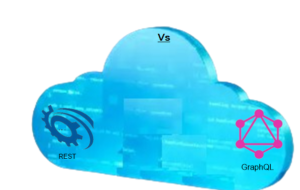Introduction to Managed Cloud Services
In today’s rapidly evolving digital landscape, managed cloud services have emerged as a cornerstone of modern business technology. Offering a blend of scalability, efficiency, and strategic value, these services are transforming how organizations manage their IT infrastructure. This blog post delves into the multifaceted world of managed cloud services, exploring their benefits, types, and the unique challenges and solutions they present across various industries. Whether you’re a seasoned IT professional or new to the concept, this comprehensive guide aims to enhance your understanding and help navigate the dynamic terrain of cloud computing.
Table of Contents
Benefits of Managed Cloud Services
Managed cloud services offer a myriad of advantages for businesses seeking to enhance efficiency, scalability, and innovation.
Cost-Effectiveness
One of the primary benefits is cost-effectiveness. Managed cloud services reduce the need for large upfront investments in infrastructure and ongoing maintenance costs. By adopting a pay-as-you-go model, businesses only pay for the resources they use, leading to significant cost savings.
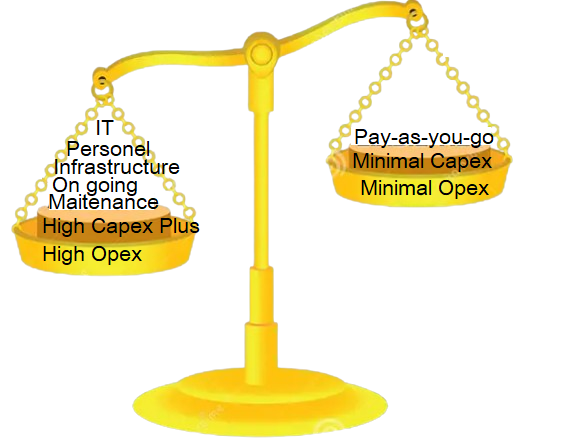
Scalability and Flexibility
Another key advantage is scalability. Managed cloud services provide the flexibility to scale resources up or down based on demand. This elasticity ensures businesses can adapt to changing needs without the burden of over-provisioning or under utilizing resources.
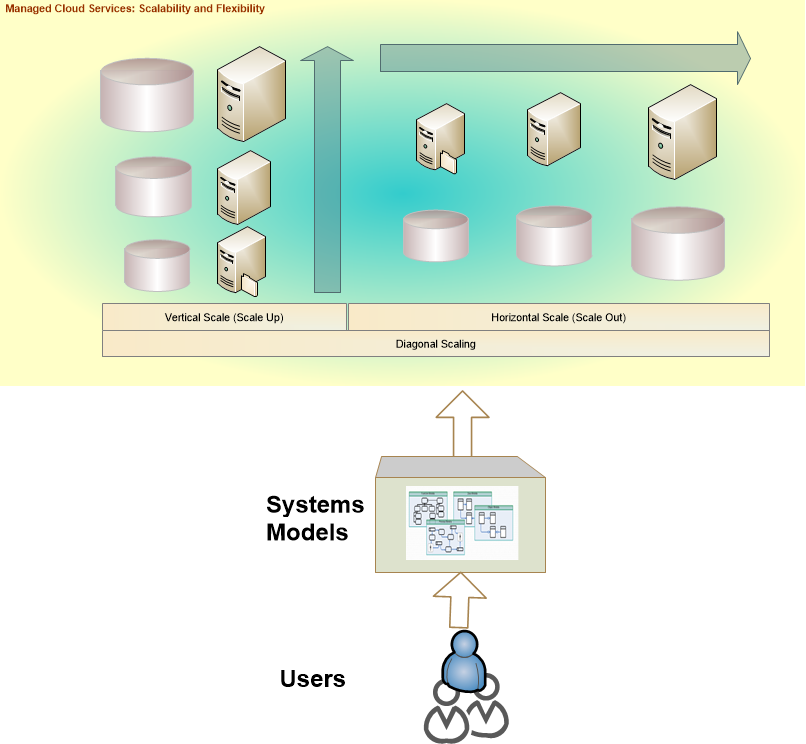
Enhanced Security
Security is a paramount concern, and managed cloud services address this by offering robust security measures. Providers typically offer advanced security protocols, regular updates, and dedicated support to protect against threats, ensuring data integrity and compliance with industry standards.
Access to Expertise
Managed cloud services also grant access to specialized expertise. Providers have teams of experts who manage and maintain cloud infrastructure, allowing businesses to focus on their core activities without worrying about technical complexities.
Improved Performance and Uptime
With managed cloud services, businesses benefit from optimized performance and high uptime. Providers employ state-of-the-art technologies and practices to ensure services run smoothly and efficiently.
Types of Managed Cloud Services
Understanding the types of managed cloud services is crucial for businesses to identify the right solution for their needs.
Infrastructure as a Service (IaaS)
IaaS provides fundamental computing resources such as virtual servers, storage, and networking. It’s ideal for businesses looking for flexibility in building and managing their IT infrastructure with minimal physical hardware.
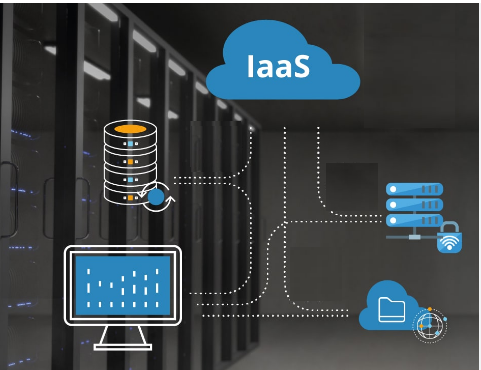
Platform as a Service (PaaS)
PaaS offers a platform allowing customers to develop, run, and manage applications without the complexity of building and maintaining the infrastructure typically associated with developing and launching an app. It a complete cloud environment that includes everything developers need to build, run, and manage applications—from servers and operating systems to all the networking, storage, middleware, tools, and more.
Example: Google App Engine, Force.com, Joyent, Azure.
PaaS providers provide the Programming languages, Application frameworks, Databases, and Other tools:
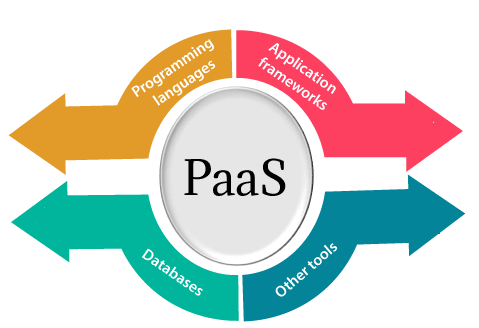
Software as a Service (SaaS)
SaaS delivers software applications over the internet, on a subscription basis. This model is highly popular due to its accessibility and ease of use, offering solutions from email to complex enterprise applications.

Database as a Service (DBaaS)
DBaaS is a cloud database service that provides users with access to a database without the need for physical hardware, software installation, or database management expertise.

Backup and Disaster Recovery
This service ensures data is securely backed up and can be quickly restored in the event of data loss or a disaster.
Choosing the Right Managed Cloud Service Provider
Selecting the appropriate managed cloud service provider is a critical decision that can significantly impact the success of your cloud strategy.
Assess Your Needs
Begin by evaluating your specific needs and requirements. Consider factors such as the scale of your operations, the type of data you handle, and your long-term business objectives.
Evaluate Expertise and Reliability
Look for a provider with a proven track record in delivering quality managed cloud services. Check their uptime statistics and read customer reviews to gauge their reliability.
Security and Compliance
Ensure the provider adheres to stringent security protocols and complies with relevant industry standards and regulations. This is particularly crucial if you handle sensitive data.
Support and Service Level Agreements (SLAs)
Understand the level of support offered. Comprehensive SLAs should guarantee uptime, offer support response times, and outline the responsibilities of the provider.
Scalability and Flexibility
The provider should offer scalable solutions that can grow with your business. Flexibility in terms of resources and pricing is also important to accommodate changing needs.
Cost Considerations
While cost shouldn’t be the only factor, it’s important to understand the pricing structure and ensure it aligns with your budget and expected return on investment.
Managed Cloud Services vs Traditional IT Services
The shift from traditional IT services to managed cloud services represents a significant change in how businesses approach their IT infrastructure.
Flexibility and Scalability
Managed cloud services offer unparalleled flexibility and scalability compared to traditional IT. Cloud services can be rapidly scaled up or down based on demand, a flexibility not typically found in traditional IT setups.
Cost Efficiency
Traditional IT often involves significant upfront investment in hardware and infrastructure. Managed cloud services operate on a pay-as-you-go model, offering a more cost-effective solution without the need for large capital expenditures.
Maintenance and Upgrades
With traditional IT, maintaining and upgrading systems is a responsibility of the business. In contrast, managed cloud services offload these tasks to the service provider, ensuring systems are always up-to-date and reducing the workload on internal IT staff.
Accessibility and Collaboration
Managed cloud services enhance accessibility, allowing remote access to resources and facilitating collaboration. Traditional IT systems are often limited by location and network constraints.
Security and Compliance
While traditional IT allows for direct control over security, managed cloud services offer advanced security measures managed by specialists, often providing superior protection and compliance with regulations.
Case Studies: Success Stories in Managed Cloud Services
The world is full of success stories about managed cloud service:
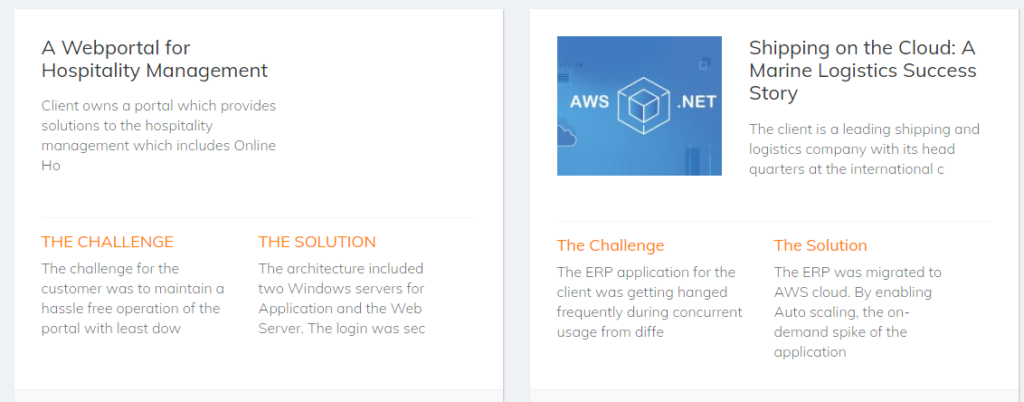
Integration with Existing IT Infrastructure
Integrating managed cloud services with existing IT infrastructure is a critical step for businesses transitioning to the cloud.
Assessment and Planning
Begin with a thorough assessment of your current IT infrastructure. Identify components that can be moved to the cloud and those that need to remain on-premises.
Hybrid Cloud Solutions
Many businesses opt for a hybrid approach, combining on-premises infrastructure with cloud services. This allows for a gradual transition and leveraging the benefits of both environments.
Data Migration
Data migration to the cloud needs to be carefully planned and executed. Prioritize data security and minimize downtime during this process.
Training and Support
Ensure your IT team is trained and supported during and after the transition. Proper understanding of the new systems is crucial for smooth operation.
Continuous Monitoring and Optimization
After integration, continuously monitor the performance and security of your systems. Optimization should be an ongoing effort to align with changing business needs.
Security and Compliance in Managed Cloud Services
Security and compliance are paramount in managed cloud services, ensuring data protection and adherence to legal standards.
Robust Security Measures
Managed cloud services employ advanced security protocols, including encryption, firewalls, and intrusion detection systems. These measures are essential in safeguarding data against cyber threats.
Compliance with Regulations
Providers are typically equipped to comply with various industry regulations such as GDPR, HIPAA, and more, ensuring that your data handling meets legal requirements.
Regular Audits and Updates
Providers conduct regular security audits and update their systems to respond to evolving threats and maintain compliance.
Customizable Security Policies
Businesses can often customize security settings to meet their specific needs, adding an extra layer of protection tailored to their operations.

Future Trends in Managed Cloud Services
Staying ahead of future trends in managed cloud services is crucial for businesses to remain competitive and innovative.
Increased Adoption of AI and Machine Learning
Expect to see more integration of AI and machine learning in cloud services, enhancing automation, data analysis, and decision-making processes.
Edge Computing Integration
Edge computing will increasingly complement cloud services, allowing data processing closer to the source, reducing latency, and improving efficiency.
Enhanced Security Innovations
As cyber threats evolve, so will cloud security technologies, with more advanced and proactive measures to protect data.
Sustainability in Cloud Computing
Sustainability will become a key focus, with providers optimizing data centers for energy efficiency and reduced carbon footprints.
Cloud-Native Technologies
The rise of cloud-native technologies, such as Kubernetes and serverless architectures, will continue, offering more agility and scalability.
Cost Management and Optimization
Effective cost management and optimization are key to maximizing the benefits of managed cloud services.
Understanding Your Cloud Spending
Begin by gaining a clear understanding of your cloud expenses. Monitoring tools can help track usage and costs, providing valuable insights.
Optimize Resource Utilization
Regularly review and adjust your resource allocation to avoid over-provisioning or underutilization. This ensures you’re only paying for what you need.
Automate to Save
Utilize automation tools to efficiently manage resources, reducing manual oversight and associated costs.
Choosing the Right Pricing Model
Understand different pricing models offered by providers, such as on-demand, reserved instances, or spot pricing, and choose one that aligns with your usage patterns.
Managed Cloud Services for Different Industries
Managed cloud services cater to the unique needs of various industries, providing tailored solutions for enhanced efficiency and innovation.
Healthcare: Secure Patient Data Management
In healthcare, managed cloud services ensure secure handling of sensitive patient data and facilitate telemedicine and electronic health records.
Finance: Compliance and Security
The finance sector benefits from cloud services that prioritize security and compliance, essential for handling financial transactions and sensitive data.
Education: Scalability and Accessibility
Educational institutions utilize cloud services for scalable storage and easy access to educational resources and collaboration tools.
Manufacturing: Streamlining Operations
Cloud services in manufacturing offer solutions for supply chain management, predictive maintenance, and real-time data analysis.
Retail: Enhancing Customer Experience
For retail, cloud services improve inventory management, e-commerce platforms, and customer data analysis.
Challenges and Solutions in Managed Cloud Services
While managed cloud services offer numerous benefits, they also come with their own set of challenges.
Data Security and Privacy
Challenge: Ensuring data security and privacy is a major concern.
Solution: Employ robust encryption, implement strict access controls, and choose providers with a strong track record in security.
Compliance and Legal Issues
Challenge: Navigating the complex landscape of compliance and legal requirements.
Solution: Work with providers who are well-versed in relevant laws and regulations, and ensure contracts clearly outline compliance responsibilities.
Integration with Existing Systems
Challenge: Integrating cloud services with existing IT infrastructure.
Solution: Develop a phased integration plan and consider hybrid cloud solutions for a smoother transition.
Managing Costs
Challenge: Controlling and optimizing cloud-related expenses.
Solution: Regularly review usage and costs, and adopt tools for monitoring and management.
Technical Expertise
Challenge: Lack of in-house technical expertise in cloud services.
Solution: Leverage the expertise of cloud service providers and invest in training for internal teams.
User Testimonials and Feedback
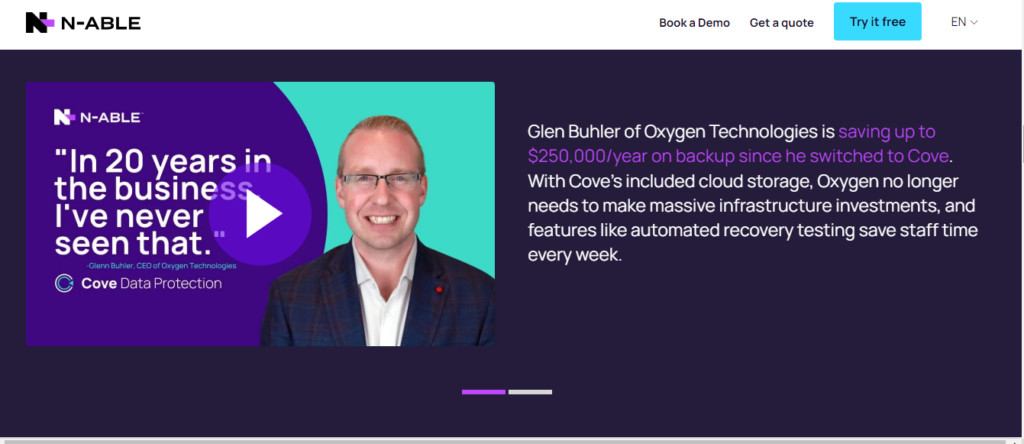
Managed cloud services significantly impact businesses across various sectors, offering a range of benefits. Overall, managed cloud services enable businesses to be more agile, efficient, and competitive in today’s digital landscape.
Conclusion
Managed cloud services have become an integral part of the modern business landscape, offering flexibility, scalability, and a host of other benefits. While challenges exist, such as data security and cost management, the solutions provided by these services often outweigh the obstacles. As we move forward, the evolution of cloud technologies will continue to transform industries, pushing the boundaries of efficiency and innovation. Businesses that embrace and adapt to these changes will find themselves well-positioned in an increasingly digital world. By understanding and leveraging the full potential of managed cloud services, organizations can unlock new opportunities and drive significant growth in their respective fields.


